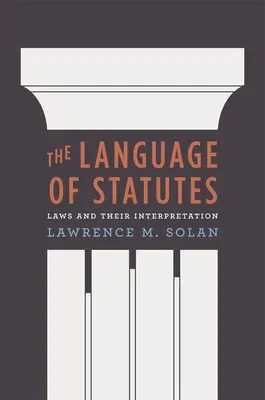Lawrence M Solan
(Author)The Language of Statutes: Laws and Their InterpretationHardcover, 1 December 2010

Qty
1
Turbo
Ships in 2 - 3 days
In Stock
Free Delivery
Cash on Delivery
15 Days
Free Returns
Secure Checkout

Part of Series
Chicago Law and Society
Part of Series
Chicago Series in Law and Society (Hardcover)
Part of Series
Chicago Series in Law and Society
Print Length
304 pages
Language
English
Publisher
University of Chicago Press
Date Published
1 Dec 2010
ISBN-10
0226767965
ISBN-13
9780226767963
Description
Product Details
Author:
Book Format:
Hardcover
Country of Origin:
US
Date Published:
1 December 2010
Dimensions:
23.11 x
15.24 x
2.54 cm
ISBN-10:
0226767965
ISBN-13:
9780226767963
Language:
English
Location:
Chicago, IL
Pages:
304
Publisher:
Series:
Weight:
544.31 gm